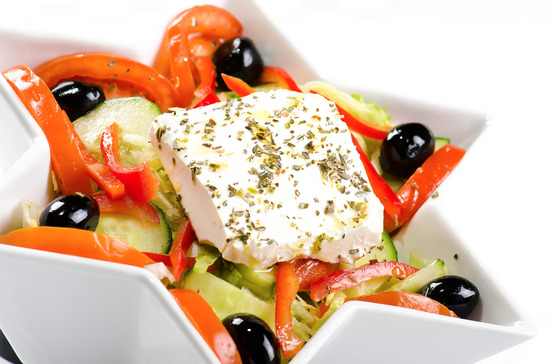Smartphone Apps and Skin Cancer
|
Reading time: 5 minutes
|

The onset of the Smartphone revolution has led to a new way of life. There seems to be an app for anything – even to detect skin cancer. But, can these apps be trusted? Are they accurate?
There are quite a number of cancer detection apps but the most common ones are:
- Mole Detect Pro
- Mole Detective beta
- DoctorMole
- SkinVision
To use these apps the user takes a picture of any suspicious moles. These pictures are stored in the application, and compared against a list of factors to establish if the mole is at risk.
The applications use advanced algorithms to test for melanoma. The algorithms are based on the ABCDE testing model, which tests five mole features for skin cancer. The tests are as follows:
- Asymmetry – Most moles are a regular round shape, so any development of an irregular shape may be of concern.
- Border – The edges of the mole should be smooth and should not appear to bleed into the surrounding skin. A ragged or blurred edge may be a problem.
- Color – Individual moles should remain one color, cancerous moles tend to exhibit more than one color.
- Diameter – If the mole is larger than 6mm, or if the mole has changed in size, the mole will need further investigation.
- Evolution – As seen above in each characteristic, any changes in the moles size, color, or shape may be cause for concern.
What many medical experts find concerning, is that cancerous moles may be classified as non-cancerous. This will lead to forgoing medical attention. Since melanoma spreads very quickly, not seeking medical attention right away, can be very dangerous.
Before the time of apps, if you were concerned about a mole, you would seek the opinion of a medical professional. Now you may choose to seek help from an algorithm from your phone. Just as we know that you cannot trust everything that you read, you cannot be naive and solely trust your smart phone apps either.
Skin cancer detecting apps definitely encourage people to investigate moles on their skin, and that is great. However, be smart about using apps at your own discretion. No one knows your own skin better than yourself. If you feel like a mole is concerning, seek professional medical help. It’s better to be safe, than to be sorry.
Why a Mediterranean Diet Is Healthy for Your Heart

Imagine if simply by consuming a variety of delicious fresh fruits and vegetables, nuts, fish and high-quality olive oil you could not only enjoy a healthier lifestyle and lose weight, but also protect against heart disease?
This isn’t a daydream: this is the reality of the Mediterranean diet.
What is a Mediterranean diet?
So-called because it’s the conventional diet of the countries that border the Mediterranean Sea, the Mediterranean diet incorporates simple ingredients to provide a holistic and balanced diet.
The Mediterranean diet encourages the consumption of mainly plant-based foods including fresh fruits and vegetables, legumes, nuts and whole grains, and suggests the elimination of red meat and refined and processed food where possible.
It also promotes the use of natural herbs and spices to flavor foods, drinking red wine on a daily basis, and eating fish and poultry on a twice-weekly basis.
But what most people would have heard about the Mediterranean diet is its passion for the use of healthy fats including olive oil and canola oil; both are said to offer a host of health benefits on their own.
How the Mediterranean diet boosts heart health
A study by the Universidad de Navarra in Pamplona revealed what many always believed to be true: a Mediterranean diet can protect against heart disease and strokes.
The study followed 7,500 adults over five years in an effort to determine which diet was more effective for heart health, a low-fat diet or the Mediterranean diet.
The results showed that individuals that followed the Mediterranean diet were 28 to 30 percent less likely than those on the low-fat diet to develop cardiovascular disease.
And according to researchers, it is not one sole ingredient in the Mediterranean diet that is especially heart-friendly; rather it’s the combination of all of the ingredients that is so miraculous.
It’s believed that the blend of healthy fats, red wine, numerous plant foods, and fresh fruits are what is particularly beneficial about this diet. The fact that it discourages processed and refined foods as well as red meat is another factor.
Added benefits of the Mediterranean diet
But the Mediterranean diet doesn’t just boost your heart health. There are also a myriad of other benefits this diet offers, including:
- Aiding in weight loss
- Promoting a healthy BMI
- Increasing life expectancy
- Reducing the risk of Parkinson’s and Alzheimer’s disease
- Reducing the risk of cancer
- Promoting regular exercise
- Protecting against diabetes
- Reducing cholesterol levels and blood pressure
To start incorporating the Mediterranean diet into your lifestyle, why not begin with some small steps? Start swapping butter and margarine for natural fats such as olive oil and canola oil, and reduce the amount of red meat you eat each week.
Before long, you too will be enjoying the benefits reaped from a Mediterranean diet!
Information provided on this website is for general purposes only. It is not intended to take the place of advice from your practitioner







